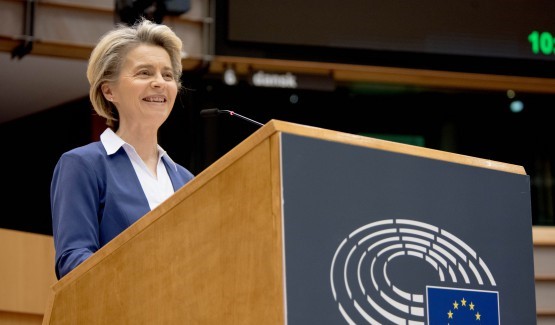The European Parliament, the Council and the Commission proclaimed the European Pillar of Social Rights in 2017 at the Gothenburg Summit. The Pillar sets out 20 key principles and rights essential for fair and well-functioning labour markets and welfare systems in the 21st century. The Pillar is structured around three chapters:
- Equal opportunities and access to the labour market;
- Fair working conditions;
- Social protection and inclusion.
The Commission has already presented several actions deriving from the Pillar, such as the European Skills Agenda (Principle 1), the Gender Equality Strategy (Principle 2), the EU Anti-Racism Action Plan (Principle 3), a Youth Employment Support package (Principle 4) and a proposal for a Directive on Adequate Minimum Wages (Principle 6).
In the same week as the Pillar Action Plan, the Commission is adopting a proposal for a Directive on Pay Transparency (Principle 2) and a new Strategy for the Rights of Persons with Disabilities 2021 – 2030 (Principle 17). More upcoming EU actions in 2021 will include, among others, the European Child Guarantee (Principle 11), a new Occupational Safety and Health strategic framework (Principle 10), an initiative to improve the working conditions for people working through digital platforms (Principles 5 and 12), and an Action Plan for the Social Economy.
The new impetus on social rights will use and reinforce the momentum created by the ambitious €1.8 trillion EU longterm budget and Next Generation EU recovery instrument.
They will provide EU funding opportunities to Member States to support a strong Social Europe. This includes support from the Recovery and Resilience Facility to fund coherent packages of reforms and investments that respond to the labour market, skills and social challenges identified in the country-specific recommendations of the European Semester.
The Porto Social Summit, organised by the Portuguese Presidency of the Council of the EU in May 2021, will focus on how to strengthen Europe’s social dimension to meet the challenges of a fair, inclusive and resilient recovery, and the green and digital transition. The Summit will be an occasion to rally forces to renew, at the highest political level, the commitment to implement the Social Pillar. The Pillar Action Plan constitutes the Commission’s contribution to the Porto Social Summit. The Pillar Action Plan builds on a broad public consultation with more than 1.000 written contributions from Member States, EU institutions and bodies, regions, cities, social partners, civil society organisations, international organisations, think tanks and citizens. In addition, the Commission held dedicated webinars with over 1.500 individual stakeholders.
On 4 March 2021, the Commission set out its ambition for a strong Social Europe that focuses on jobs and skills for the future and paves the way for a fair, inclusive and resilient socio-economic recovery. The European Pillar of Social Rights Action Plan outlines concrete actions to further implement the principles of the European Pillar of Social Rights as a joint effort by the Members States and the EU, with an active involvement of social partners and civil society. It also proposes employment, skills and social protection headline targets for the EU to be achieved by 2030.
Read the original press release here.




